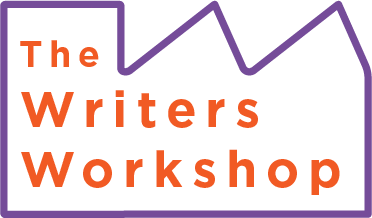Avoiding the Graveyard of Submissions: Letty Butler on Finding an Agent
In the first part of our interview with friend of the Writers Workshop Letty Butler (June 17), we explored short-story submission. Now we turn to submitting to agents and staying productive. We hope Letty is an inspiration to you on your writing journeys and wish you every success with the Summer of Submission!
You’ve recently secured an agent for your novel. How did you go about it?
Getting an agent is more labour intensive and requires more research than submitting short stories. Literary agents all have a different set of requirements in terms of the submission process, so it's crucial to read the guidelines on the agency website.
It’s also really important to read agents’ individual bios to get a feel for who they are, who they represent, what they’re looking for and the kind of writing that floats their boat. You need to tailor your cover letter to each individual agent, and demonstrate that you’ve done your ‘homework’ in terms of why you think you’d be a good match.
One of the other things I did was read up on writers whose work I felt aligned with mine, found out who represented them and approached the agent. Mentioning comparative writers or books in the cover letter is also an effective shortcut to contextualise who you are and what you write. It did take a lot of time and effort, but I think it was worth making a tailored approach to the right agents, because I got a good hit rate in terms of responses.
I found a really useful tool called agentmatch via the website Jericho Writers, which I used to make a shortlist of agents who might like my work. You can filter genres, read about who is looking for what etc, so you're not trawling through hundreds of individual agency websites.
Do you think submitting short fiction has helped you to get an agent?
I definitely think my short fiction helped me get noticed. Agents get hundreds of submissions every day, so I shoved ‘Bridport-shortlisted writer’ in the title of the email, which made it stand out a bit. I actually stole this tip from my mum, who worked as an actors’ agent for years. An eye-catching title in the inbox can be the difference between someone opening the email or burying it in the graveyard of submissions.
How do you juggle writing shorter fiction with your longer project?
If I’m blocked or bored with a long project, I dick about with flash fiction for a few days. It’s also a good thing to do first thing to get the creative juices juicing. It reminds me to play with words and that writing isn’t all pesky plot points and endless redrafting.
In general, I find short fiction a very useful antidote to the slog of writing a novel. Psychologically, it’s helpful to finish a piece and get it out into the world. It makes me feel like a real writer, as opposed to a madwoman tapping away in the dark. If something gets published or wins a prize, it encourages me to keep plodding on with the marathon of novel-writing. Plus it’s nice to have something to tell people, when they ask the inevitable question: ‘Are you still writing your novel?’
What are the pros and cons of having a dual focus?
The pros are the dopamine hit when you finish something, and the sense of validation if it gets picked up. I don’t know if anyone’s read Big Magic by Elizabeth Gilbert, but she talks about creative ideas having a shelf life, and that if you don’t act quickly enough, your idea will attach itself to someone else. I find this concept extremely unrelaxing, so writing short fiction helps alleviate it! If I have too many ideas bubbling away at once, I find it really stressful, so flash fiction is a quick way to unleash an idea. ‘Better out than in’ and all that. I also think writing in short form has taught me to be more economical and precise with language. And the screenwriting element is really useful for dialogue within a longer-form prose project too.
The cons are that things can get a bit overwhelming. Plus competition fees can end up costing a small fortune, and submitting can take up a hell of a lot of time.
Any final tips for our Summer of Submission?
Don’t look at your phone on public transport—look out of the window instead, or listen to conversations. In fact, look at how much time you’re spending on your phone and/or social media in general and curb it. Get curious about the world again; don’t just shove a podcast on and walk around with your head down, look up, notice things, take notes.
Read.
Rest.
